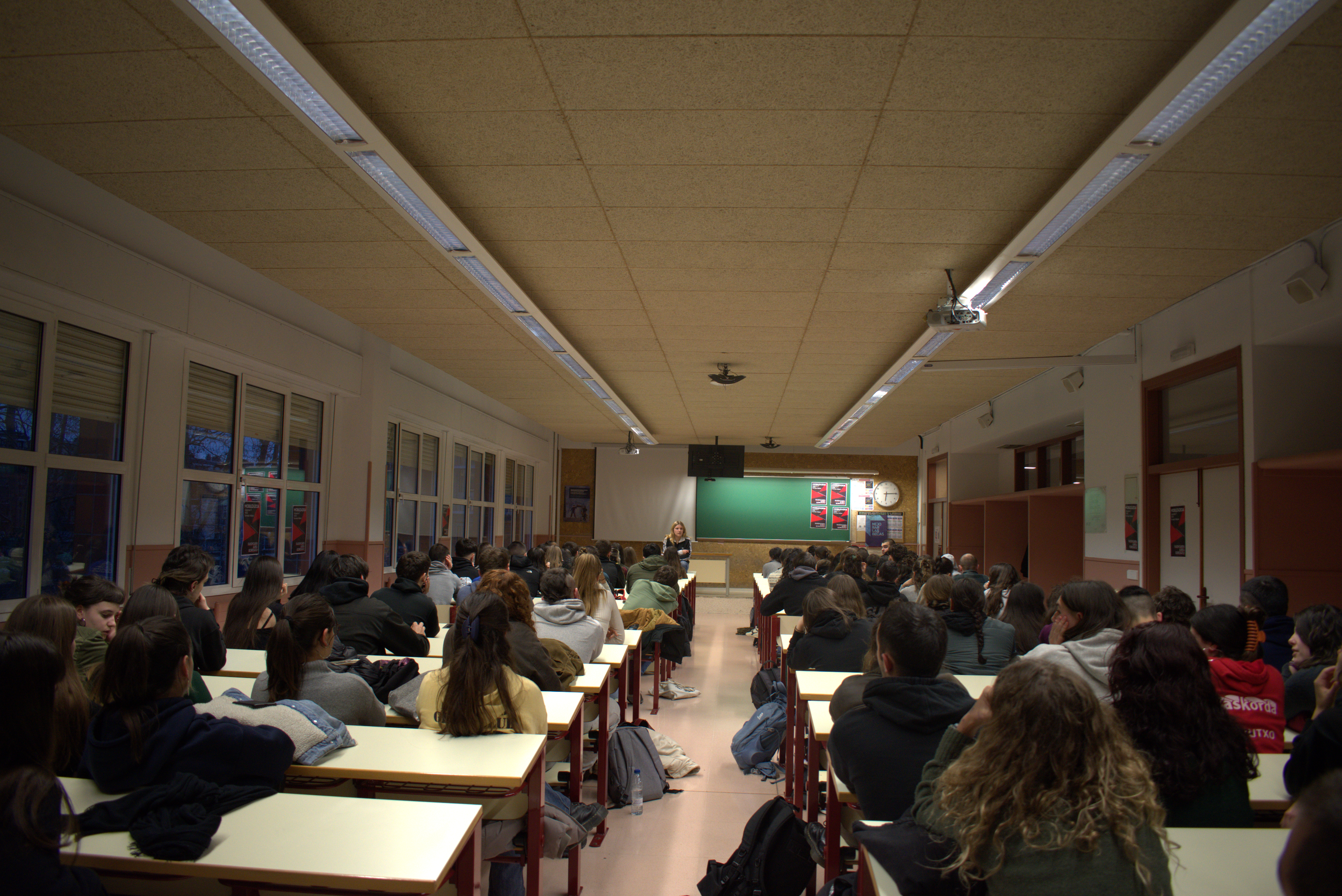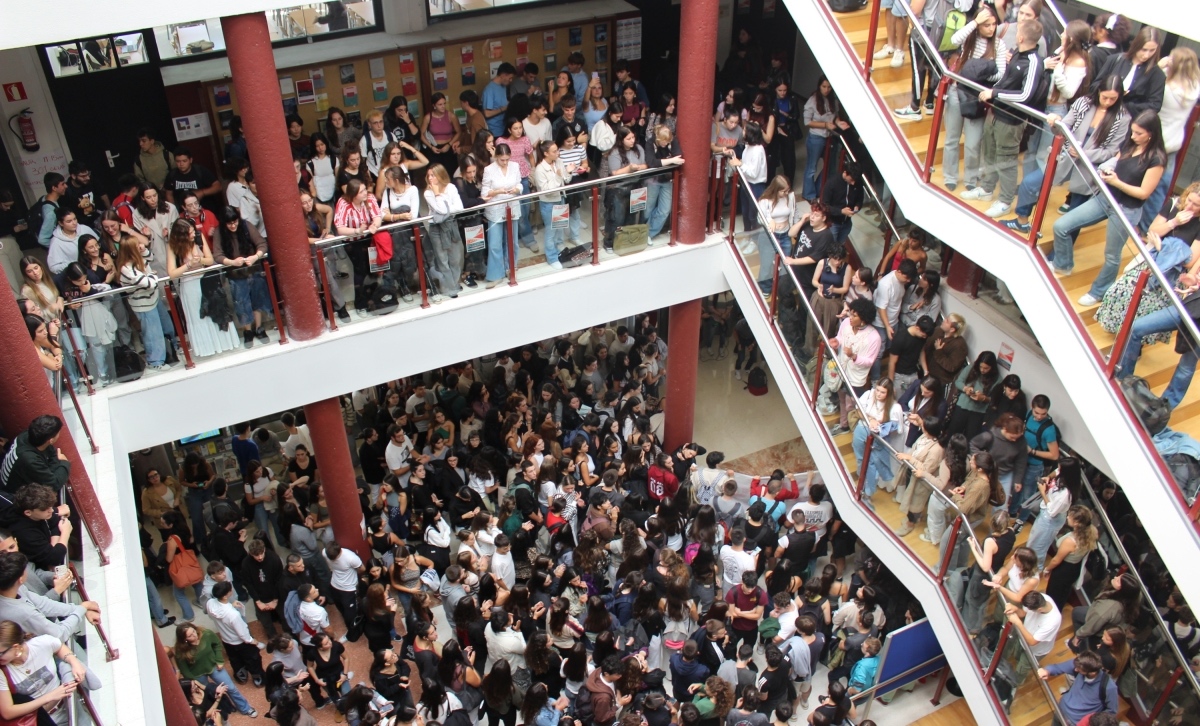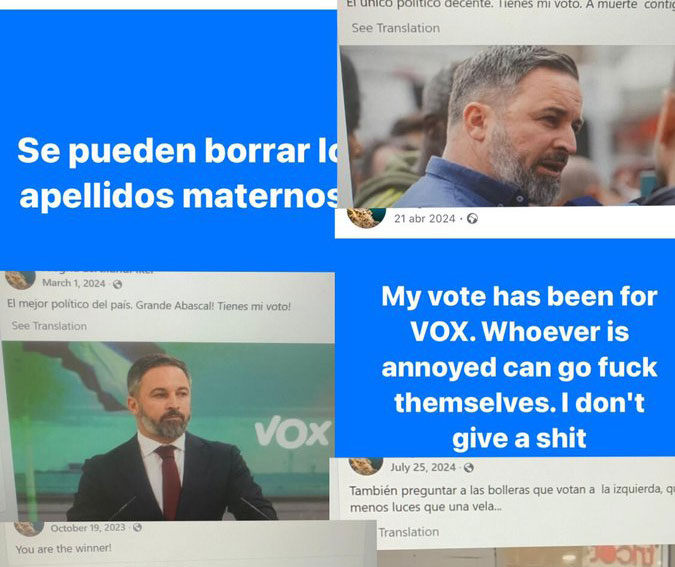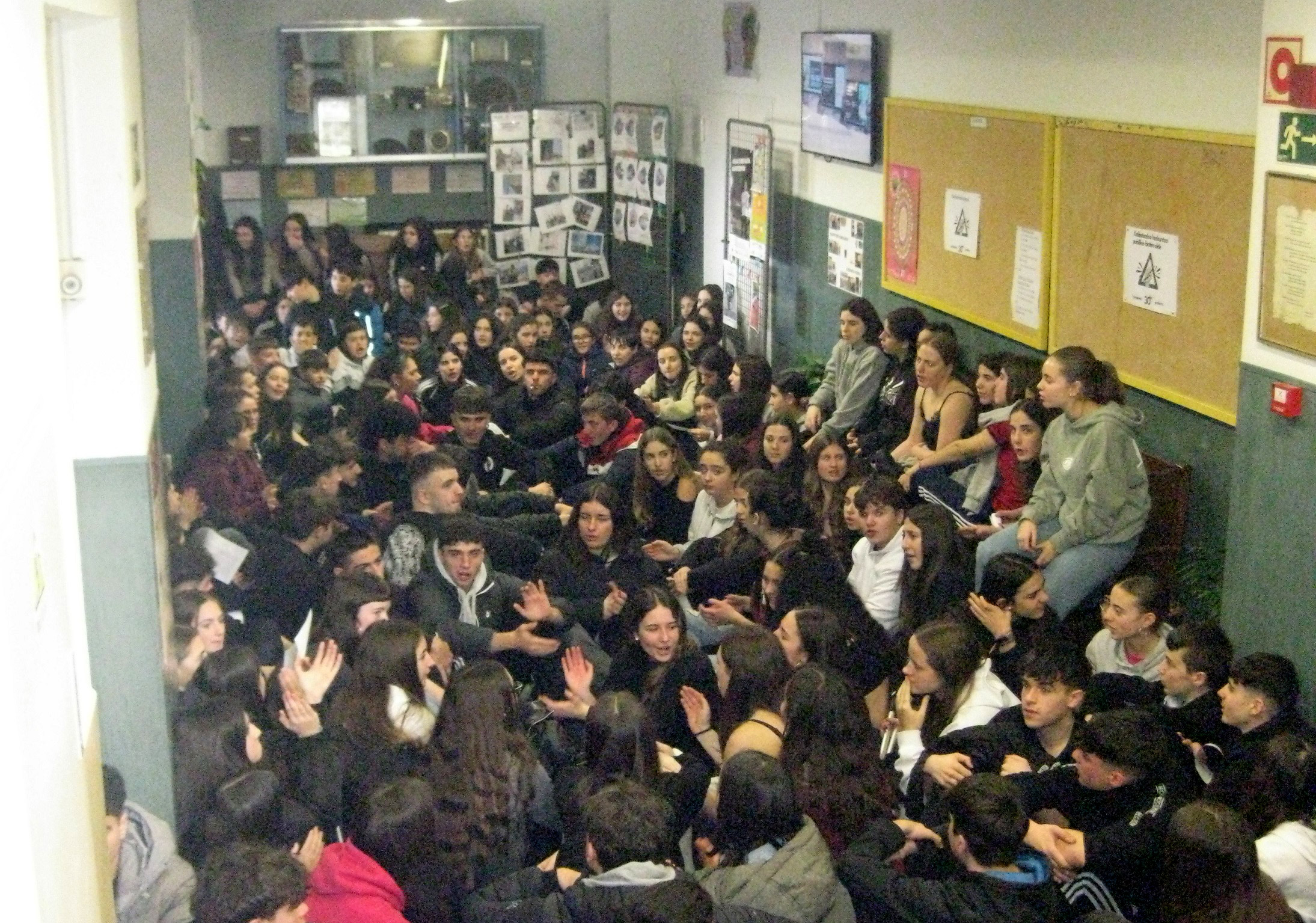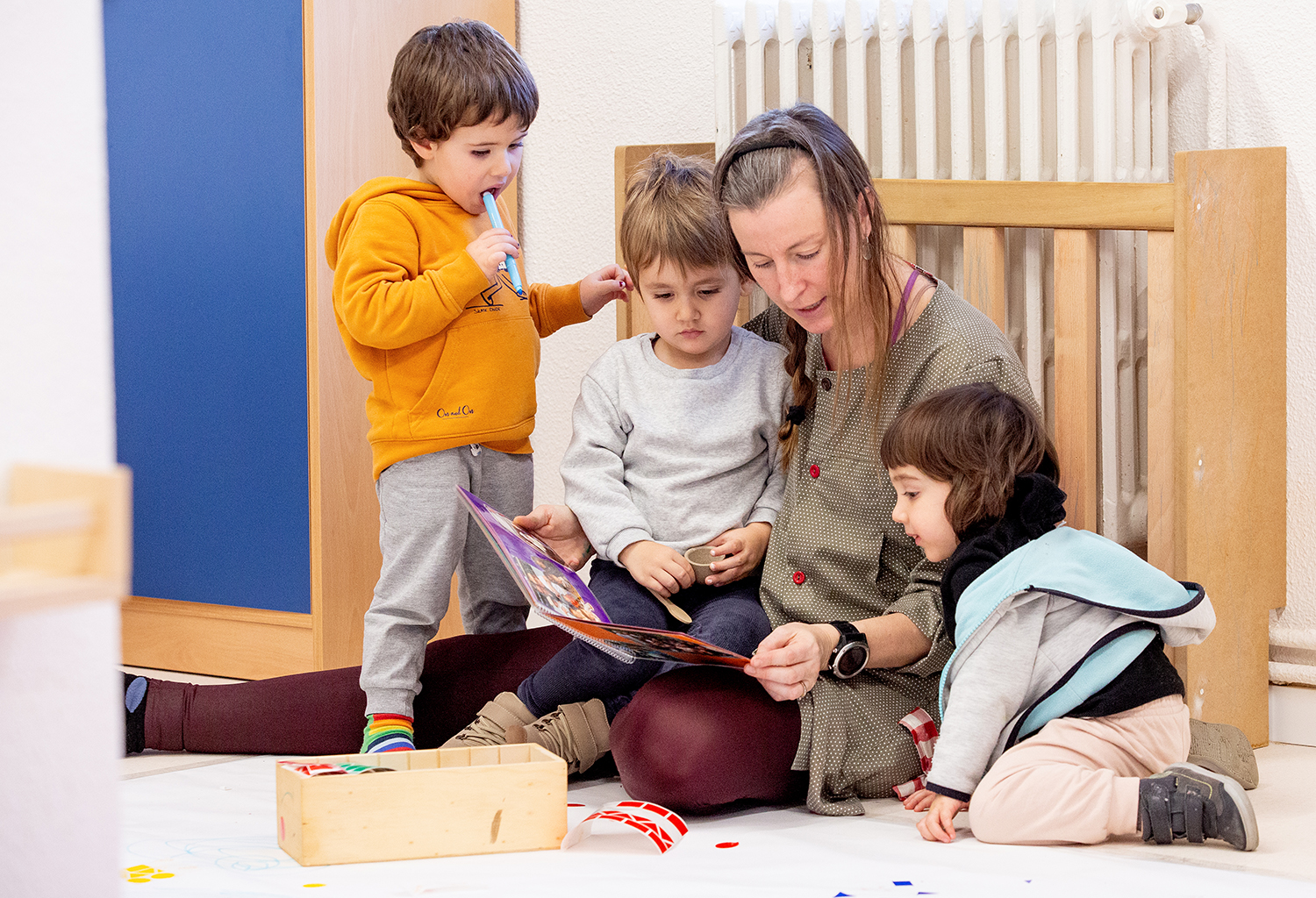Haurreskola cannot be a conciliation solution
- Irun Iraun Public School in Irun celebrated its tenth anniversary this year and over 200 families, some 700, have attended the festival over these years. It is a special stage between 0 and 3 years and the relationship established between educators and families is not very varied either. We have approached daily activity and talked with the educators Idoia Karrera Etxebeste and Nerea Gomez Pombar about the care, the bases of this cycle, the stimulation of children, the value given to work in haurreskola…
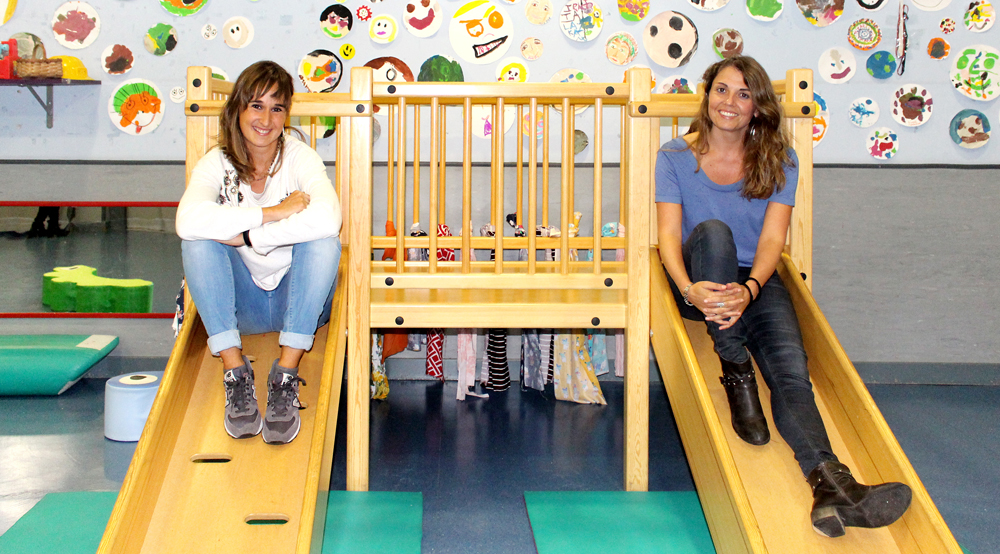
They have a fixed equipment, it's an advantage.
Nerea Gómez: It gives us stability, so that we can function as a group, we're not on our own. At the moment, there are nine permanent educators and three alternates.
Idoia Karrera: Together we rethink the ways of doing and the causes, and we take advantage of the 100-hour annual training for that. We have worked on the relationship and trust with the families for two years, we have worked on the importance of space, the material we use, the different areas of care... In addition to the educators, the team is composed of
a dining assistant and two cleaners. We try to make this work visible, to the families, many times because it is a hidden job, because by the time we arrive everything is clear, but for that to be so, when we leave the building others have come to work.
You're a public haurreskola. Advertising and free of charge for all is an old union demand for the possibility of registering the child to be available to all and all.
Race: The Basque Government proposed that haurreskola be free of charge in households with incomes below EUR 18,000, something that is found in the air. On the one hand, the reality is that there are families who cannot afford this service, and on the other, the publication would be the recognition of this cycle.
Gómez: In fact, up to 6 years of age, it is not mandatory to attend school, but while age 3-6 is guaranteed to attend school, the reality of 0-3 is different and enrolments are expensive.
“Each family has its backpack, the reality of each one is very different and needs to be taken into account”
On the contrary, those with such resources sometimes choose to educate their children at home in this age group. In this paradigm of care, how do you understand the function of haurreskola?
Race: Haurreskola cannot be a conciliation solution, it needs more comprehensive solutions, changes must be made at the social level, starting with the labor world, so that everyone can decide how they want to educate the child in those first years of life. In addition, children get sick, for example, and the family always needs a “plan B” beyond haurreskola. There are families who bring children here because they are working, but there are also families who have decided to educate the children at home and want to leave them for a few hours in the haurreskola. Because the role of the Haurreskolak is not assistential, but educative, and many families believe in it.
Gómez: Haurreskola can be a way to satisfy the need for the child to meet other children from a certain age. There are families who also find refuge in us, a community, perhaps because they are overwhelmed... At the same time, that does not mean that the option of educating at home is not legitimate.
Race: The starting point is that every family wants the best for their child. And if a family thinks that educating at home is the best thing for their child, go ahead. And if another family has done a different reflection or experiences another reality, it has opted for haurreskola, which has the opportunity to do so.
The Haurreskolak should therefore not be understood as a conciliation solution, but how do people live? You have the haurreskola open from 7:30 to 17:00.
Race: The time of the center is the same, but the child can stay in the center for up to eight hours, according to the law. Is it eight hours? I go before: instead of judging, we must think that all families do what they think is best for their children, and for you the best is that in order that at home you do not miss the child, that you work and leave the child in the haurreskola, because your job does not give you any possibility of conciliation, or because you do not have a care network around… Gómez: Or even if you don't have a job, you may have to leave the child for a few hours and take time, structure your ideas so that when you take the child again, it gives you quality time. Each family has its backpack, the reality of each one is very different and needs to be taken into account before criticizing “that is lazy”. Paternity is not an easy thing.
What priorities do you have in haurreskola?
Race: The boy or girl has the natural ability to learn things and to do so we put strength in three aspects: affective security (that feels secure, that has attachment to us…), space (clean, safe, warm, nice, in relation to natural light, with outer space…) and the material (suitable for every moment of the child, simpler and natural than of an era…)
Gómez: For many years it has been a tendency to accompany the child in everything (“he is old enough to start walking, because I take him and I start him up”), but our base is to let him do, not channel him, because we believe in him and respect his rhythms. If you feel at ease and secure, go ahead. Our job is to be close and adapt the context through observation (if we see that one material does not do well, we put another at your disposal). Language is often not yet developed and we help to put words to what happens to them, to feelings, to emotions.
“At one time it seemed that if he did not give him a lot of stimuli he would not achieve his optimal development, but little by little the child’s well-being has been put at the center”
You let them do. In some children's schools, on the other hand, there is early stimulation.
Race: It is clear to us that by anticipating or doing before the child will not have a more fruitful development. In a suitable context, once prepared, the child will overcome each stage and will obtain his/her self-esteem on his/her own, through the process of trial error.
However, in some households there is a desire for the child to begin to internalize and learn contents from childhood.
Race: We tell families why and how we do things, what is our opinion and our performance as professionals. Some of them join us in our functioning and others play differently, and we try to understand and adapt to everyone, because to get angry we won't get anything. In any case, I would say that the tendency towards overstimulation has fallen. At one time it seemed that if he did not give him a lot of stimuli he would not achieve his optimal development, and gradually this mindset is appeasing, the well-being of the child has been put at the center.
Have family models changed in these years?
Gómez: I see that parents have more and more information. Some are almost expert and better understand our decisions, or question those decisions…
Career: Unique parents, separated, of foreign origin, of the same sex, supra-parental structures… This diversity is also more evident. For example, the word “father” has disappeared from our observations, now we use it “family”, because it encompasses more diverse models.
At this age it is usually said that children absorb everything, which also begin to shape the conception of the world, and you are an important reference in that path.
Gómez: The courses have helped us to become aware of our activity.
Race: Each of our gestures is thought of. We speak and act in a certain way for a reason. At the first family meetings we said: “We have 5 girls and 7 boys.” We don't do it anymore, we think talking about gender is insignificant, and we're also trying with boys and girls not to make gender distinction.
It is the stage that allows innovation and experimentation.
Gómez: We do this constantly: we review and rethink our activity through training and as a team.
Race: Boys and girls are very open to new things and it is true that more and more jobs are trying to respond better from an educational point of view to these ages. So far, although it is recognized that it is a very important stage in human development, there have been very few studies on 0-3.
“We are not subject to any doctrine. From the theories we take what is good for us, because what has worked for me this year may not work for me with the next group of children.”
The theory of classroom training or practice, what stands out in everyday life?
Race: Training serves us to listen to what experts say, and then we decide what we do about it, because some theories will serve us and others will not. We claim that theory must join us, that we must believe in what we do. We do what we do because we believe in it, not because a theory says it. And at the core of everything, of course, common sense.
Gómez: We claim that we are not subject to a doctrine. We are not a Pikler school, nor a Montessori school… but we take what comes from those theories. Each group of children is very different and that also influences, because what has worked for me this year with this group may not work for me next year.
Ratios will also influence, i.e. the number of boys and girls per educator.
Gómez: The Haurreskolak Consortium has established the need for an educator and a half for eight children in step 0-1, and an educator and a half for thirteen children in step 1-2. Normally, instead of one and a half, two educators are the ratio; we have it and we work in pairs. Children are very young and need personalized attention; there are things to improve on ratios.
We're talking about stage 0-3, but actually haurreskola takes 0-2.
Race: CAV is one of the few communities in the Spanish state where cycle 0-3 has been broken. Two or three years ago, we were removed from the 2-3 year class (sorry, it was taken away from us) and schools took that age. This is a political decision that does not make pedagogical sense, surely because private centers began appropriating classrooms of 2-3 years to respond to this trend, but the whole cycle 0-3 has not been taken into account.
Gómez: The jump to school is very strong for many children and families, as we are told every year. They jump to a large school and patio, with just one teacher, the families also don’t have the doors open like here…
Carrera: 0-3 is a very specific stage, we do it in a different way, and I think that's because in teaching you don't want a two-year class, because you want to do what you do in the 3-year-old classroom in the 2-year-old classroom, and that's not possible. We have been cut off from the possibility of rounding the cycle. No one is satisfied with the decision and last year families collected signatures to maintain the classrooms of 2 years in the haurreskola.
“The lack of prestige at this stage has to do with the value given to surveillance. For us, care is a very nice concept. Is there anything more important than care, that of oneself and the other?”
The importance of age 0-3 is recognised. Does the same confession have your work?
Gómez: Sometimes I have to hear it. “How have you worked today, what have you done, applaud and change the packages?” But there are also people who are becoming more and more aware. We believe that age 0-3 is fundamental and that the bases established therein influence life. And therefore, our work is important.
Race: As workers, we are a cycle in which we mobilize, surely because they make us feel small and we think we deserve something else. As a result of last year’s negotiations, it was possible, among other things, to increase substitutions, more hours of coordination and to rate in the Education lists the people we work with 0-2 years: it is a great step on the way to recognition, until now they did not even take us into account in the Education lists!
In your work team you are all women. Can the fact that it is a feminized sector be related to the lack of prestige of this stage?
Race: It can be, and I would say that it also has to do with care and with the value that is given to care. For us, however, care is a very nice concept, and although at one time it was difficult to call ourselves “childcare”, it now seems to us to be a nice word. We take care of the child and the child as a whole, taking into account all their needs: basic, affective, of development... Is there anything more important than caring, from oneself to mutual care?
The Department of Education doesn't understand why public employees have gone on strike. He's got to ask the LAB Syndicate. This union signed an agreement with the department in April 2023. Two years later they have also called for a strike because, unlike the previous ones, the... [+]
Erretiratu berri den lankide-ohi baten omenez, Historiako irakaslea. Bejondeizula!
Hezkuntza-legeek azpimarratzen dute zein garrantzitsua den ikasleengan pentsamendu kritikoa sustatzea. Baina irakasle-klaustroak, garai batean ideien eztabaidarako eta proposamenak... [+]











_2.jpg)
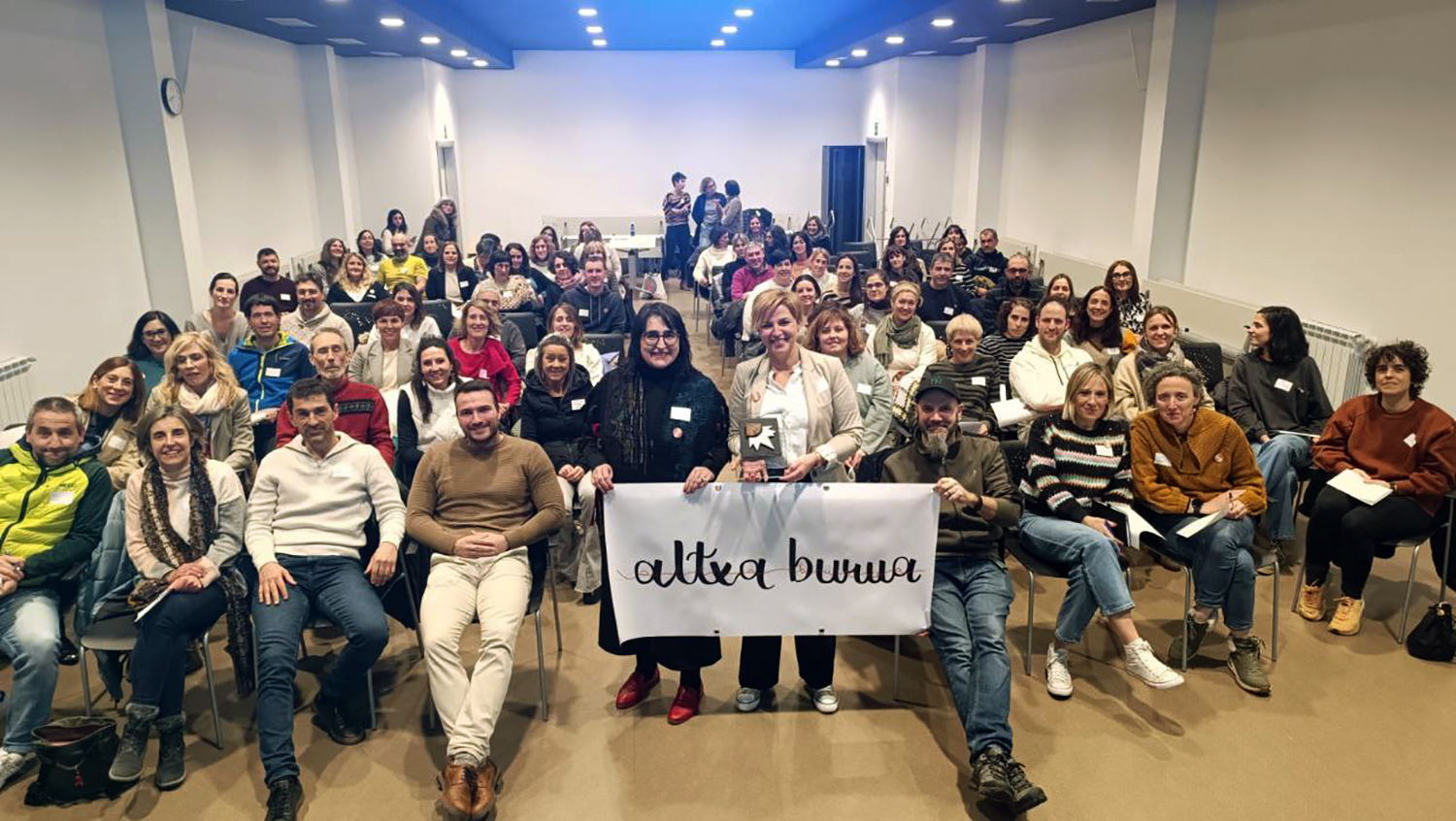
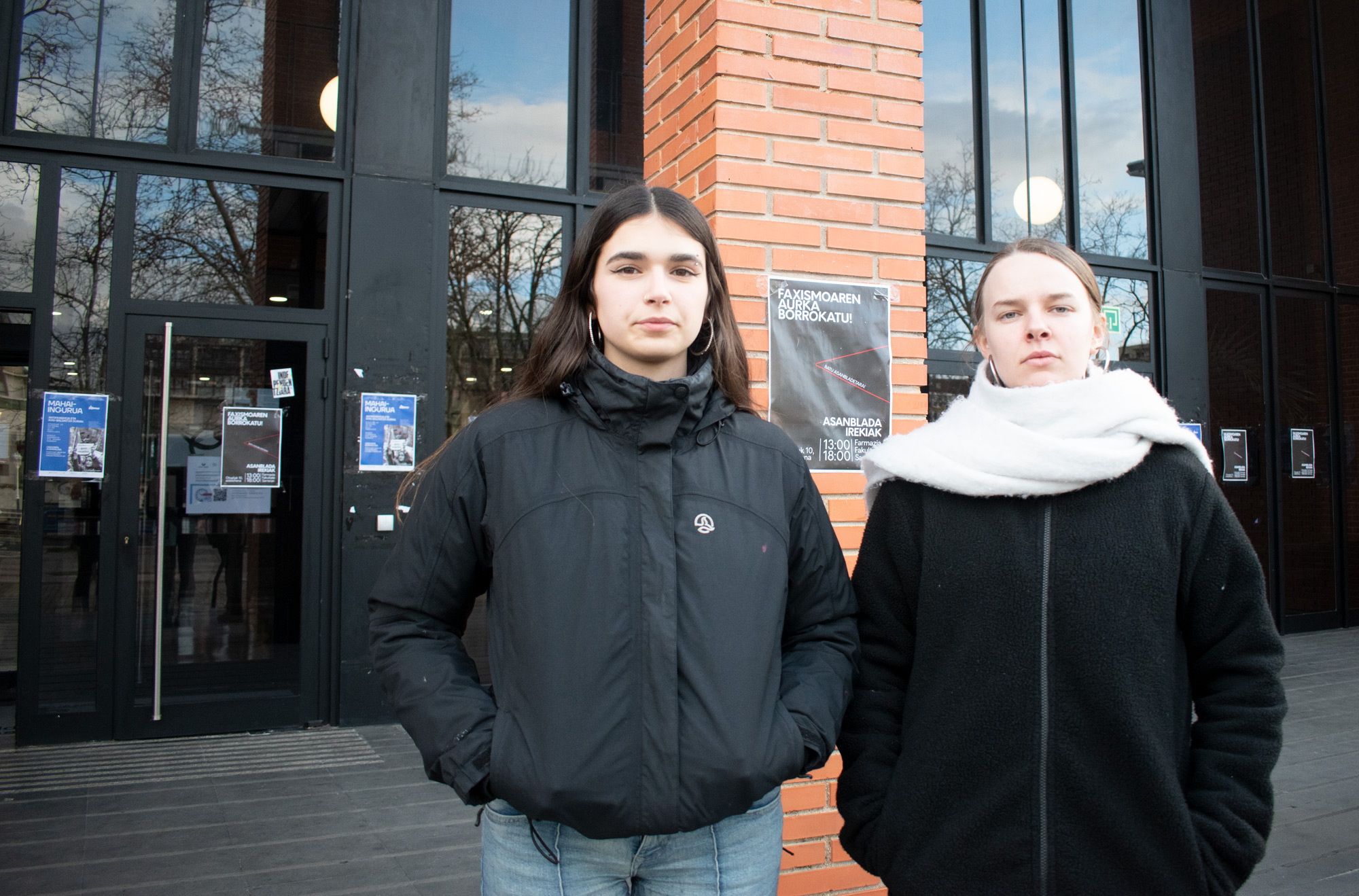
_2.jpg)

_2.jpg)
